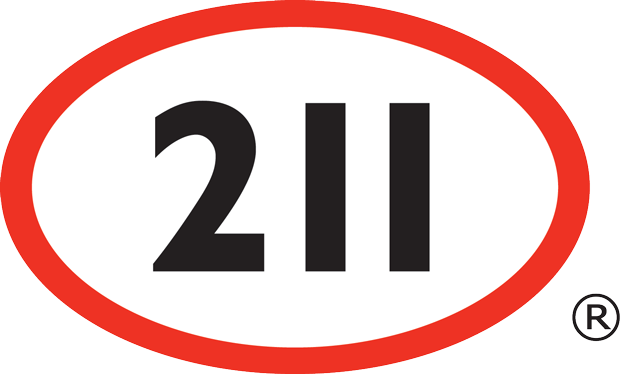Find Community and Social Resources
Find services by topic
Legal Aid and Juridical Assistance
211 receives regularly requests from individuals seeking legal help or advices. Many people are not eligible for legal aid, so we regularly refer to other community services that can provide information, legal advice and in some cases representation by a lawyer.
Legal Aid: hire a lawyer for free or at a low cost
 |
Services | Find Organizations in the Greater Montréal |
|---|---|---|
| Legal Aid Offices |
Since the 1970s, Quebec has adopted a legal aid system allowing eligible individuals to retain a lawyer free of charge or at low cost. However, there are several eligibility criteria regarding the applicant’s type of litigation or financial situation.
What legal situations are covered by legal aid?
Access to legal aid is available when the situation concerns a matter of family law, youth protection, criminal prosecution or government benefits such as: social assistance, indemnity from Société d’assurance automobile du Québec (SAAQ), Commission des normes, de l’équité, de la santé et de la sécurité du travail (CNESST) or Employment Insurance (EI). A complete list of services covered or not covered is available on the Commission des services juridiques (CSJ) website under What services are covered?
How to qualify for legal aid based on income levels?
Your financial situation is a determining factor since the Act respecting legal aid and the provision of certain other legal services provides specific scales for eligibility to free or contributory legal aid. Individuals who are excluded from free access to legal aid will pay a fixed and predetermined contribution based on their income. The amount to be paid remains the same regardless of the actual value of the services rendered and varies between $100 and $800.
| Family Situation of Applicant | Free Aid - Maximum Income | Contributory Aid - Maximum Income |
| Single individual | $22,750 | $31,778 |
| Family of one adult and one child | $27,834 | $38,872 |
| Family of one adult and two or more children | $29,714 | $41,498 |
| Family of spouses without children | $31,661 | $44,224 |
| Family of spouses with a child | $35,424 | $49,478 |
| Family of spouses with two or more children | $37,306 | $52,106 |
Whom should I contact to get information on my eligibility for legal aid?
The best way to confirm your eligibility status is to make an appointment with the nearest legal aid office. Several documents may be required, including those required to establish the previous year’s income, those relating to annualized assets and deductions, and those required for the cause. If you made an application and feel that your eligibility has been wrongly rejected, you may ask for a review to the Review Committee.
In the event of an arrest, are there legal services available?
In addition, CSJ provides a 24/7 telephone service to anyone who has just been arrested, whether or not the person is eligible for legal aid. In cases of arrest, call 1-800-842-2213 for an emergency consultation.
Apart from legal aid, what other resources can I turn to?
Two government agencies offer free legal services for situations which are not covered by legal aid.
The Commission des droits de la personne et des droits de la jeunesse du Québec (CDPDJ) can receive complaints on grounds of discrimination, exploitation or harassment prescribed by the Charter of Rights and freedoms. The Commission may also provide help if you believe that an offence has been committed against a minor by a person or an organization under the Youth Protection Act or the Youth Criminal Justice Act. All complaints do not necessarily lead to a court process, but when this is the case, the CDPDJ provides lawyers and represents the prejudiced individual.
The Commission des normes, de l’équité et de la sécurité du travail (CNESST) operates in a similar way. If your complaint about labour standards or pay equity is deemed admissible and if you are not part of a union, CNESST will act as a liaison between you and the employer and will represent you in court if need be.
Can I get legal advice from community organizations?
 |
Services | Find Organizations in the Greater Montréal |
|---|---|---|
| Legal Counselling |
In addition to these three institutions, some community organizations offer the opportunity to seek legal advice from a lawyer. Sometimes, topics covered in these meetings relate to the mission of the organizations offering them, while at other times all questions are welcome. As most community groups use volunteer lawyers, these legal consultations are most commonly offered as sporadic legal clinics of varying frequency. Offered a few times a year or by appointment, these consultations cover a wide range of topics such as the rights of seniors, immigrants, women and parents, to name a few. It is advisable to contact the organization to find out their schedules and conditions.
What if they summon me before the court? Can a lawyer represent me?
While the above mentioned consultations may be of great help, they may prove insufficient if you are summoned to court. In this case, it is preferable to hire a lawyer to represent you. If you are not eligible for legal aid, organizations such as Justice Pro Bono or Clinique juridique Juripop can help you.
Pro Bono Québec offers complete legal services free of charge to individuals deemed eligible by its approval committee. Your application must be received at least 8 weeks before the date of any hearing date or deadline related to your file, and you must prove that you are not able to pay for a lawyer.
The Clinique juridique Juripopoffers legal services at a lower price to its members. It costs $20 to become a member and $55 for opening fees. An hourly rate applies and varies according to your income, but this rate remains far below standard legal fees. In this case, application must be made at least 4 weeks before any hearing or deadline related to your file. A form is available online.
In addition to minimum deadlines of 8 and 4 weeks respectively for Pro Bono Québec and Clinique juridique Juripop, it is strongly suggested to apply as soon as possible because these services are highly coveted and these organizations cannot accept all requests.
If you are not represented by a lawyer, the Young Bar of Montreal (YBM) can help you prepare for your appearance if it takes place in Montreal in one of the following courts: Court of Quebec, small claim division; Régie du logement; Administrative Labor Tribunal, Labor Relations Division or Court of Appeal. You can get a free consultation of twenty minutes.
If these resources prove insufficient, you can turn to a professional body or association who have a directory of its members and can provide you with references. The Barreau de Longueuil and the Bar of Montreal, for example, have a reference service. The first half-hour of consultation with a lawyer that was referred to you is at a lower cost.
Is there legal information telephone line?
 |
Services | Find Organizations in the Greater Montréal |
|---|---|---|
| Legal Information telephone line |
In addition, if your situation is not too complex or if you are unable to travel, you may be able to obtain legal advice over the telephone through legal information lines offered by some organizations. The advice you get is not a formal legal opinion, but it is certainly a good step forward in your process. You will then be able to explain your problem and get advice from a qualified person on options available to you, legal issues at stake, and so on. Again, this can be addressed to a specific clientele or to everyone.
What is mediation?
 |
Services | Find Organizations in the Greater Montréal |
|---|---|---|
| Mediation |
A mediation process is usually guided by an impartial third party seeking to resolve a dispute, reach an agreement between two people and avoid that a problem is taken to court. We can refer you to organizations if you want to avoid formal court action and if your issue concerns a family dispute, neighborhood problem or labour dispute. Mediation is also available if you are the victim of wrongdoing, if you are experiencing a conflict with your landlord or if you are in the process of divorce.
Are there workshops or training sessions to inform me about my rights?
Whether it is out of curiosity, to gain knowledge, or to get prepared for litigation, different community organizations offer opportunities to learn about your rights and remedies. In the form of conferences, workshops or individual meetings, there are opportunities to learn about a field of law and be better prepared as a citizen.
Legal education and information sessions are generally offered by individuals who are not lawyers or notaries, but rather have a wealth of experience in their field and wish to benefit others. The organizations in our repertory cover a wide range of subjects: divorce, child custody, health, labour law, social rights (government benefits), etc. Furthermore, these organizations are sometimes specialized in providing information to vulnerable people such as seniors, homeless people, immigrants, refugees and victims of sexual exploitation.
What if my rights as a consumer are not respected?
 |
Services | Find Organizations in the Greater Montréal |
|---|---|---|
| Consumer Protection |
If you are in a conflictual relationship with a service provider or a person with whom you have a business relationship, you may be able to receive help from a consumer protection agency (Consumer protection agencies) to resolve the issue. Their general mandate is to collectively represent clients from a similar sector or beneficiaries of a service to defend their interests and ensure their rights are respected. These agencies can guide you through the various complaint procedures and make applicable regulations accessible.








